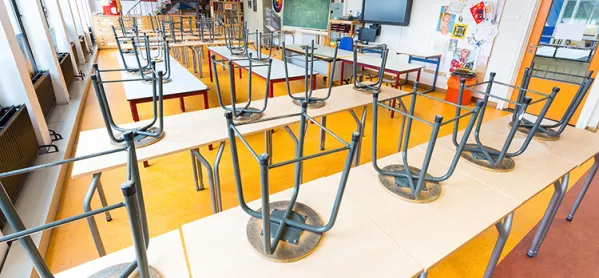- Home
- Feedback during Covid-19: will it widen the gap?
Feedback during Covid-19: will it widen the gap?

Teachers deliver many forms of feedback. But there is one vital form that is currently missing from our arsenal during this Covid-19 pandemic, and this presents us with a serious dilemma.
I’m not talking about written feedback, which has very little solid evidence for its efficacy: I’m talking about the continuous feedback we deliver to our pupils during every second of our lessons.
Teaching and learning are interactive. Responsive teaching involves constantly interpreting the performance of pupils and tweaking your approach accordingly.
Great teaching requires you to react to classroom dynamics - something that becomes impossible when you cannot see your students.
Essentially, our most effective way of feeding back to our learners has been cut off.
While online learning platforms may offer a function to deliver feedback on pupil performance, this usually only goes so far as to give a score and the correct answers. A pupil isn’t likely to understand why they got the question wrong, as their thinking hasn’t been unpicked and rebuilt by the teacher.
Over the past weeks, I have seen different teachers describing how they are feeding back to their pupils, be it using an online meeting platform or responding to individuals by email.
The problem is, I’m not sure if we should be feeding back at all. I’m in a moral dilemma here.
The case for feedback
If some pupils are keen to learn and receive feedback, we absolutely shouldn’t take that right away from them. It’d be wrong to do so. A class full of eager young minds who are able to self-regulate may well make some decent progress off their own backs.
The majority of teachers are also currently (at the time of writing) likely to be working from home on full pay. Feeding back to pupils is an important part of the job and something we spend the majority of our time doing, so why would we stop?
The case against
Now, think of your classes. I’m sure you are envisaging at least a few children who are unlikely to complete the work set. Chances are, these pupils are also the ones who make the least progress, in normal conditions, due to myriad reasons beyond your control.
If we are providing effective feedback to learners outside this group then the attainment gap is going to widen. We would be actively, and knowingly, further disadvantaging those already at greatest risk. Isn’t that morally wrong?
It feels like we have to choose the lesser of two evils: not provide any academic feedback and have less progress all round, or provide feedback to those that engage in work and widen the gap. It’s a philosophical conundrum.
Feedback in the time of Covid-19
So where does this leave us?
Maybe there is an opportunity here that lies outside of our concerns about progress within subjects. Maybe we could focus on developing our pupils as learners instead.
There will never, fingers crossed, be a time like this again when pupils are thrown in the deep end in terms of being required to work independently. Should our feedback to pupils address their attitude and aspiration instead of how they could improve their grammar or multiplication of fractions?
My school has asked staff to contact all pupils by phone each week, not just those identified as vulnerable. The majority of pupils I speak to are in my tutor group or my science class, so I know them.
The phone call allows us to check their wellbeing and provide some feedback on their attitudes and approach to working independently. During calls, I have helped pupils access our Covid-19 work resource, plan how and when they are going to work more effectively during the day and also suggest ideas to stop them getting bored. Perhaps this is the kind of feedback they need the most right now.
There will certainly be a mammoth task ahead to fill in knowledge gaps when we eventually return to normal schooling, but we may also be welcoming back pupils with greater self-regulation and metacognitive skills.
If we are going to provide feedback to pupils during these times, let’s focus on making them better learners and not worry so much about academic content. This feels like the fairest approach for all of our learners, whichever side of the gap they fall.
Ian Taylor is lead teacher at Trinity Academy Sowerby Bridge. He tweets @MrTSci409
Keep reading for just £1 per month
You've reached your limit of free articles this month. Subscribe for £1 per month for three months and get:
- Unlimited access to all Tes magazine content
- Exclusive subscriber-only stories
- Award-winning email newsletters



